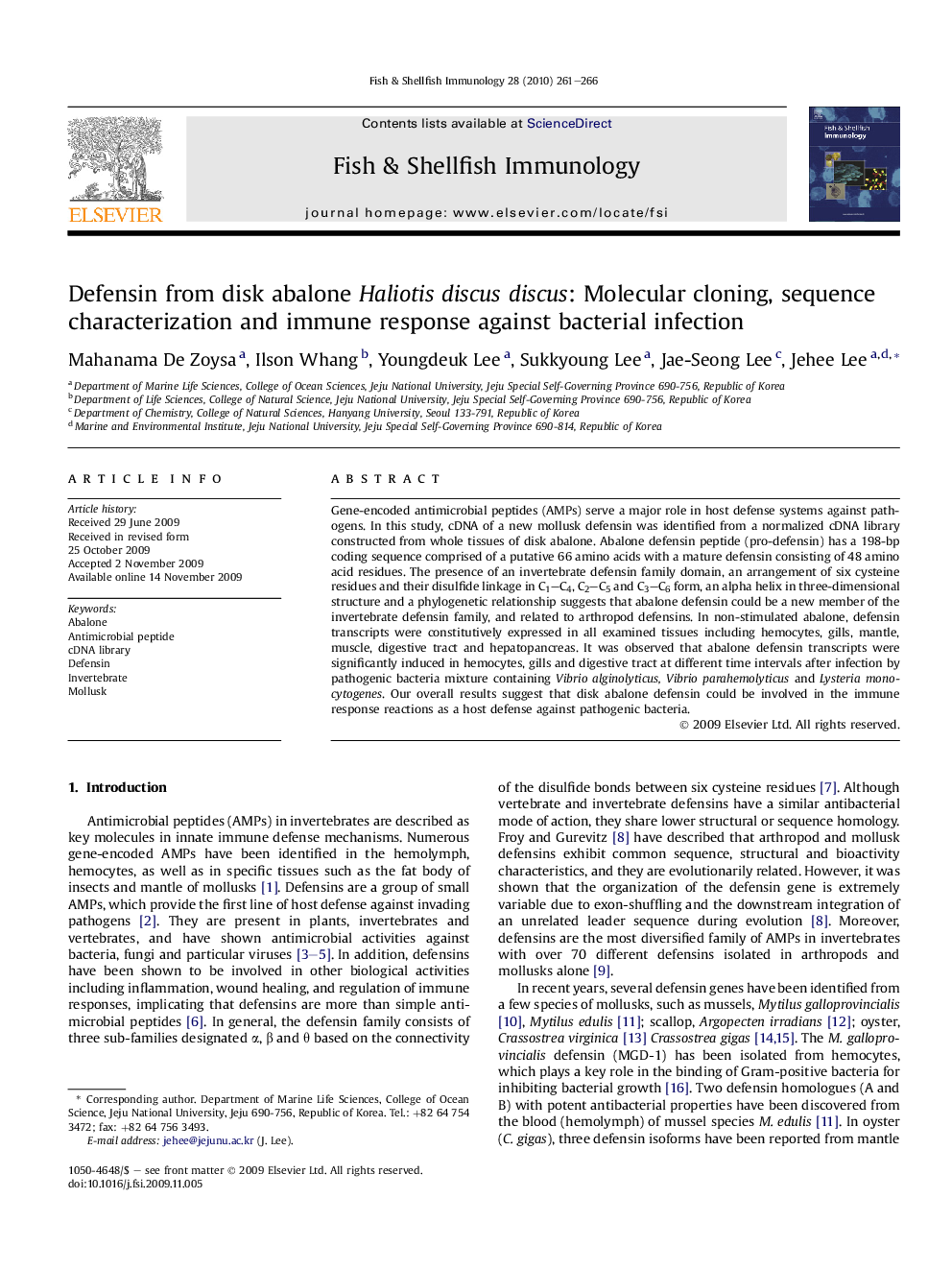| Article ID | Journal | Published Year | Pages | File Type |
|---|---|---|---|---|
| 2432643 | Fish & Shellfish Immunology | 2010 | 6 Pages |
Gene-encoded antimicrobial peptides (AMPs) serve a major role in host defense systems against pathogens. In this study, cDNA of a new mollusk defensin was identified from a normalized cDNA library constructed from whole tissues of disk abalone. Abalone defensin peptide (pro-defensin) has a 198-bp coding sequence comprised of a putative 66 amino acids with a mature defensin consisting of 48 amino acid residues. The presence of an invertebrate defensin family domain, an arrangement of six cysteine residues and their disulfide linkage in C1–C4, C2–C5 and C3–C6 form, an alpha helix in three-dimensional structure and a phylogenetic relationship suggests that abalone defensin could be a new member of the invertebrate defensin family, and related to arthropod defensins. In non-stimulated abalone, defensin transcripts were constitutively expressed in all examined tissues including hemocytes, gills, mantle, muscle, digestive tract and hepatopancreas. It was observed that abalone defensin transcripts were significantly induced in hemocytes, gills and digestive tract at different time intervals after infection by pathogenic bacteria mixture containing Vibrio alginolyticus, Vibrio parahemolyticus and Lysteria monocytogenes. Our overall results suggest that disk abalone defensin could be involved in the immune response reactions as a host defense against pathogenic bacteria.
